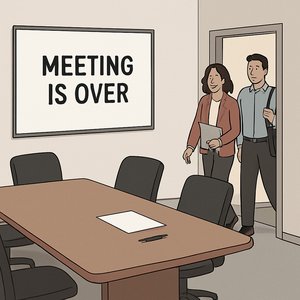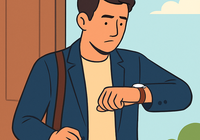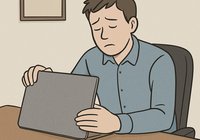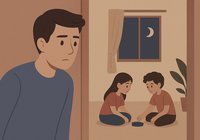| Phrasal verb | Main meaning |
|---|---|
be over [biː ˈəʊvə] | to have finished |
Other meanings
- to be ended
- to be at someone's house / to be visiting
- to be located at a place (e.g., “I'm over at the office”)
Example Sentences Using the Phrasal Verb "be over"
- The meeting is over.
- The concert was over by midnight.
- Classes will be over next week.
- He is over at his sister's house this afternoon.
- I was over at Tom's yesterday.
Features of Using "be over"
The phrase be over is most commonly used to say that an event or activity has finished. It also appears in locative uses with at (or alone in informal speech) to indicate that someone is at another person's home or at a particular place. Tense of the verb be changes as usual (is, was, will be) while over stays fixed. Use context to distinguish “finished” from “located/visiting.”
Other phrasal verbs with the verb be
be back
to have returned to a place
be away
to be absent or not at home
be in
to be at home or in a particular place
be against
to oppose or disagree with someone or something
be on
to take place
be behind
to be late or delayed
be for
to support or favor something
be out
to be absent or not at home
be into
to be interested in or enthusiastic about something or someone
be out of
to have no more of something
be about to
to be on the point of doing something (imminent future)
be down
to not be working or functioning
be up
to be awake; not sleeping
be after
to try to obtain or pursue someone or something
be off
to leave or depart
be with
to support or agree with someone
be along
to arrive soon
be through
to have finished something
be up to
to be doing something (often secretly or mischievously)
🔗 Learn more about the irregular verb be, including its forms and usage.




















